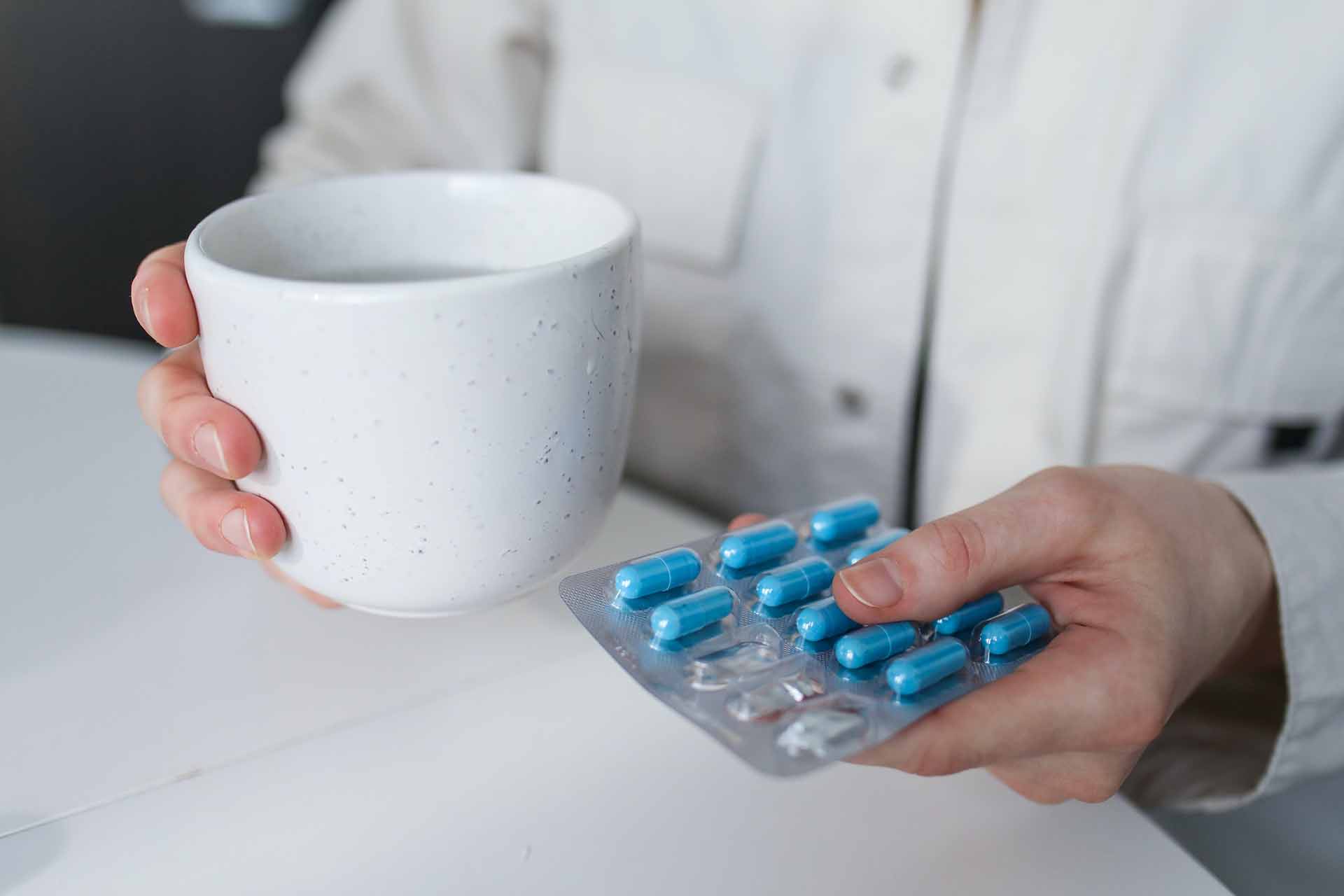Anxiety is a constant companion for us. Some people have mild anxiety, while others have severe anxiety that is difficult to manage and can lead to panic attacks if not addressed. (1)
There are several drugs available now that can be used in combination with therapy to manage anxiety. Some of these include benzodiazepines (2), which are tranquilizers or sleeping tablets used to quiet an active body, Zoloft, an antidepressant (3), and antipsychotic medicines like Seroquel (4), among others.
Beta-blockers for anxiety, such as propanol, are also widely used. Another beta-blocker, Metoprolol, can assist with anxiety by changing how your brain reacts to particular nerve signals. (5)
This blog is concerned about Metoprolol for anxiety. Many people take metoprolol because it is considered a more economical anxiety medication than other, more expensive treatments. Metoprolol is a drug that is used to relieve anxiety’s physical effects. It contains inhibitory components, which aid in reducing anxiety’s physical manifestations.
Let us delve a little more into what metoprolol is, how it works for anxiety, and other essential aspects that we are concerned with.
What are beta-blockers?
Beta-blockers are a group of medications used to treat high blood pressure, rapid heartbeat, chest pain, and a number of other cardiac problems. They may also help with anxiety treatment.
Beta-blockers have a significant impact on the stress neurotransmitters norepinephrine and epinephrine. These hormones are concerned with the physical symptoms of anxiety, and blocking them helps manage some of the physical symptoms of anxiety. (6)
Some doctors employ beta-blockers off-label to help patients who are not responding to traditional anxiety medications. When a medicine has been authorized by the FDA for one purpose but is being used for something not licensed, this is known as off-label usage.
Even though beta-blockers are not designed to be used as an anti-anxiety medication, they might make you feel calmer. Beta-blockers can aid in the reduction of heart rate. Your heart can indicate to your brain that it is not terrifying if you take away your ability to quickly increase your heart rate. The brain receives calming signals when our heart and body are quiet—this aids in the relief from anxiety.
Propranolol, acebutolol, and metoprolol are some of the examples of beta-blockers that are useful for anxiety.
What is Metoprolol?
Metoprolol belongs to the beta-blocker class of drugs. Doctors commonly prescribe metoprolol and other beta-blockers to treat cardiovascular diseases such as hypertension and chest discomfort. In 1978, the FDA approved the use of metoprolol under the brand name Lopressor while Metoprolol is a generic name. (7)
Metoprolol is also used to treat irregular heartbeats and improve the odds of survival after a heart attack or heart failure.
Metoprolol has also been demonstrated to help with migraines and some types of tremors produced by medications used to treat mental illnesses.
Metoprolol is regularly used off-script to help performers cope with performance anxiety before and during a performance that would typically make even the most well-prepared people nervous. (8)
How does Metoprolol work for anxiety?
Metoprolol is a beta-blocker, which indicates it prevents the effects of adrenaline, a hormone released in fight-or-flight conditions. The medicine works by preventing the effects of epinephrine, which include increased heart rate, breathing heavily, nausea, and elevated blood pressure. (9)
Beta-blockers are frequently referred to as beta-adrenergic antagonists. They block a hormone called Adrenaline which attaches to adrenergic receptors in your body. Beta receptors are adrenergic receptors found in the heart. Adrenaline attaches to these beta receptors in the heart, causing it to beat faster and harder. (10)
Beta-blockers inhibit adrenaline from attaching to beta-receptors in the heart by blocking its effects. Consequently, the heart may pump blood with less effort, causing your cardiovascular system, particularly your blood vessels, to calm, which in turn improves anxiety.
Metoprolol can influence every part of the human body that has beta receptors. They are present on every tissue that is part of the sympathetic nervous system and hence react to the stress hormone. (11)
Beta-1, which is predominantly located in the heart, and beta-2, which is found in various tissues, including smooth muscle in the bronchial tubes and veins, are the two kinds of beta-receptors identified in the body.
Although metoprolol binds to both types of receptors, it does not stimulate the cellular response. The hormones adrenaline and noradrenaline are unable to reach their target and trigger the reaction as a result of this.
Small dosages of metoprolol only influence the heart’s beta-1 receptors, preserving the heart’s usual momentum. Higher dosages of the same medicine can also control the beta-2 receptors, affecting breathing and causing difficulty while inhaling since they directly target the lungs and airway receptor sites.

How does Metoprolol make you feel?
Metoprolol can make nervous people feel calmer and more controlled without causing drowsiness. The goal of anxiety treatment is for you to be able to go about your daily activities without being inhibited by symptoms. By decreasing your body’s adrenaline response to everyday stimuli, metoprolol can let you focus on more important things. (12)
Unlike SSRIs, which treat anxiety and depression over time and take several weeks to take effect, beta-blockers work immediately and can be used as required with no side effects. They temporarily ease anxiety symptoms but do not cure anxiety. If you are constantly experiencing anxiety symptoms, you may need to try a different medication or supplement another prescription with metoprolol.
Metoprolol can help with stage fright before performances, public speaking engagements, and sleep anxiety. They have traditionally been administered to persons with performance anxiety before speaking in public or performing. Just make sure to test it out first in private to see how it impacts you before utilizing it for a high-stress situation. They can help with social anxiety if taken before parties or dates, and they are a safe alternative for when fear strikes.
It can be taken alone or combined with sleep aids to relieve pre-sleep anxiety. This beta-blocker avoids the interference of thoughts about the past day or fears about the upcoming day from increasing heart rate and hindering a natural transition into sleep.
How long does Metoprolol take to work for anxiety?
The first time you take metoprolol for anxiety, you will probably feel a difference immediately, but it may take an hour or two for the medication to take full action. Your heart rate will drop during this period, which may help you feel calmer.
Take metoprolol 2 hours before any stressful event, or performance, such as a job proposal, an audition, or an exam, if you are afraid and nervous.
However, you should test it out in private to see how it affects you because the time it takes metoprolol to work for anxiety varies depending on various circumstances.
Metoprolol generally takes an hour to start working, but you will not get complete improvements for another week.

How long does the effect of Metoprolol last?
Metoprolol’s efficacy lasts three to six hours in general, but you may expect some more time for relaxation and relief from anxiety in real.
The recommended dose is determined by your symptoms, diagnosis, and other health issues. Metoprolol is usually begun at a low dose and subsequently raised if necessary for anxiety alone.
The medication works quickly, reaching peak levels in less than an hour. A standard dose of metoprolol has a relaxing effect for a few hours after it gets in your system.
Dosage of Metoprolol for anxiety
Metoprolol is a prescription medicine; hence you need a doctor’s approval before using them. Your dose will be determined by your doctor depending on your individual needs.
Typical starting doses are about 100 mg per day. It can be taken all at once or in several doses. Your doctor may advise you to raise your daily dosage depending on how you respond to the initial dose. The maximum daily dose is 450 mg.
Metoprolol should not be used more than the stated dosage. Too much might cause breathing problems, dizziness, and tremors if your heart rate is slowed too much. Always remember to take your medication on time, and if you forget and the next dose is approaching, you should skip it.
Available forms of Metoprolol
Metoprolol is commercially accessible in two forms, which are typically referred to as salts:
Metoprolol tartrate
Metoprolol tartrate is a shorter-acting medication with a low dose. It works quickly and provides comfort. These forms of metoprolol are used to improve a person’s chances of surviving a heart attack. (13)
Metoprolol succinate
Metoprolol succinate is a longer-acting medication that lasts for several hours. It does not take effect right away, but it lasts much longer than metoprolol tartrate. (14)
The critical difference between them is that Metoprolol tartrate is an immediate-release tablet, which implies it affects your body promptly after taking it and does not stay there for long. This is why you must take metoprolol tartrate numerous times each day. In comparison, metoprolol succinate is an extended-release pill that persists in your system for a longer duration. As a result, metoprolol succinate only has to be taken only once a day.

Side effects of Metoprolol
Metoprolol, like all beta-blockers, is deemed safe. However, various adverse effects may occur depending on the individual. Although side effects are generally minimal and uncommon, they can occur, particularly when you first begin taking the medication. The following are some of the most prevalent side effects of metoprolol:
- Since it reduces the effects of adrenaline on the heart, metoprolol can induce a decreased heart rate. However, you must contact your health care physician if your heart rate drops below 50 beats/minute. (15)
- Insomnia, nocturnal awakenings and other sleep difficulties have been reported when using metoprolol. (16)
- Metoprolol may make you feel more tired than usual because of its effect on how your body reacts to stress hormones. You usually get fatigued when you start taking the medication, and this effect typically goes away after a few days.
- Another typical symptom during the first few weeks of taking medicine is nausea and diarrhea in some people.
- Dry eyes can be induced by metoprolol which may cause pain and discomfort. (17)
- Metoprolol can cause difficulty breathing, chest tightness, and even asthma attacks in some people.
Some people may experience severe side effects when taking metoprolol; however, this is uncommon. See a doctor immediately if you experience shortness of breath with a cough that worsens when you exercise, such as swollen ankles or legs, chest pain, or an irregular heartbeat.
Is Metoprolol safe?
Metoprolol is generally safe, yet, like with other pharmacological drugs, there is a slight risk of severe side effects. Metoprolol and other medicines pass the blood-brain barrier quickly, increasing the risk of serious adverse effects such as depression or psychosis; nevertheless, the chances are still low.
It is always recommended not to stop taking the prescription without consulting your doctor, as this might result in substantial chest pain or even a heart attack in rare cases.
However, unlike other anti-anxiety drugs, metoprolol is not addictive; therefore, you will not become dependent on it. This is a clear benefit of using metoprolol and other beta-blockers that should be explored, particularly if you have a history of substance misuse.
Precautions
Before you start taking metoprolol, there are some things needed to be considered:
- Metoprolol is not a cure for high blood pressure or chest discomfort; it merely helps manage them; therefore, it should not be used as an ultimate treatment option.
- If you have allergies, taking metoprolol might make them worse and reduce your chances of reacting to your usual amount of epinephrine. If this happens, contact your doctor straight away.
- Beta-blockers, including metoprolol, should not be used if you have asthma, a sluggish heart rate, or heart failure.
- Your doctor should be cautious when prescribing it to the elderly or persons with diabetes.
- If you have asthma or another lung illness, diabetes, hyperthyroidism, congestive heart failure, or certain forms of irregular heartbeats, inform your doctor right away before he prescribes this drug.
- Before taking metoprolol, notify your doctor if you are pregnant, nursing, or may become pregnant. There is not enough research to ensure that metoprolol is safe during pregnancy; thus, it should only be used if absolutely essential. (18)
Interaction of Metoprolol with other drugs
When used with beta-blockers, the following widely prescribed drugs may cause a drug interaction:
- Erectile dysfunction is treated with the drug sildenafil. It may enhance the blood-pressure-lowering benefits of metoprolol when taken together. Dizziness, lightheadedness, fainting, headaches, and a fast heart rate are possible side effects. (19)
- Antipsychotic drugs like thioridazine and chlorpromazine are used to treat psychotic diseases, including schizophrenia and depression. People who take metoprolol together may have low blood pressure and irregular heart rhythms. (20)
- Ibuprofen and other nonsteroidal anti-inflammatory medicines (NSAIDs) may reduce metoprolol’s effectiveness in controlling blood pressure. (21)
- Clonidine is a medicine used to treat high blood pressure, ADHD, and drug withdrawal. After using a beta-blocker, keep an eye out for severe rises in blood pressure, especially when starting or quitting any medicine. (22)
- When coupled with metoprolol, drugs that slow the heart rate might cause an extremely slow heart rate. Digoxin, clonidine, diltiazem, and verapamil are examples of these drugs. (23)
- Drugs that inhibit the CYP2D6 enzyme in the liver might cause your blood to have higher amounts of metoprolol than usual, increasing your risk of adverse effects. Quinidine, fluoxetine, paroxetine, and propafenone are examples of these drugs. (24)
This list may not cover all adverse effects or potential drug interactions, and you should get medical advice from your healthcare practitioner for more drug information before using metoprolol while on any medication.

Conclusion
It is vital to remember that the main reason for prescription metoprolol is not to treat anxiety; nonetheless, it can be administered when the occasion calls for it, such as during a presentation or performance, but it should not be used long-term.
Consider going to psychotherapy and learning some coping skills for anxiety to help you handle your anxiety without negative effects. Additionally, it is critical to speak with your doctor about various treatment choices for anxiety and assess each option’s benefits and negative effects.
Since metoprolol hasn’t been licensed particularly to treat anxiety, this is considered short-term therapy. However, before being administered metoprolol, always tell your doctor if you have any medical history or take any other medications to avoid drug interactions or severe side effects.
Nonetheless, metoprolol is a safe medicine with no notable adverse effects if used properly. It can significantly reduce performance anxiety and help you relax. To reap the benefits of this medicine, take it 1-2 hours before any stressful event.
If you no longer require it, visit your doctor, who will lower the amount and eventually eliminate it; however, do not stop taking it immediately.

